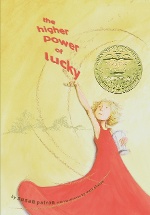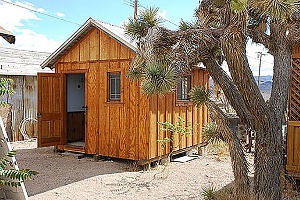After the Call: Newbery Kerfuffle
Immediate effects of the Newbery Award public announcement: scrotum references, scrotum jokes, questioning of scrotum relevance, and even overtures from a small, apparently well-meaning scrotum-related paraphernalia mail-order business (that included mouse pads and tote bags, among other items).
 Immediate effects of the Newbery Award public announcement: scrotum references, scrotum jokes, questioning of scrotum relevance, and even overtures from a small, apparently well-meaning scrotum-related paraphernalia mail-order business (that included mouse pads and tote bags, among other items).
Immediate effects of the Newbery Award public announcement: scrotum references, scrotum jokes, questioning of scrotum relevance, and even overtures from a small, apparently well-meaning scrotum-related paraphernalia mail-order business (that included mouse pads and tote bags, among other items).
A front-page article in the New York Times, and weeks on the NYT Best Seller list. Invitations to give keynote speeches. Retirement from my job as juvenile materials collection development manager at the Los Angeles Public Library. Embarking on a West Coast whistle-stop train tour arranged by my publisher. Writing articles and editorials. Photo on the cover of School Library Journal. Becoming the object of a form of censorship where school librarians decided not to add the book to their collections. Receiving threats of violence. Being interviewed on NPR. Generating the answer to one of the questions on Wait Wait…Don’t Tell Me!
All this fame and notoriety because on the first page of a book that was awarded the Newbery Medal, the ten-year-old protagonist eavesdrops at an Alcoholics Anonymous meeting and overhears a story of a rattlesnake biting the scrotum of a dog.
As a long-standing youth-services librarian, I am well aware that people will attempt to censor materials for reasons that are often grounded in fear. Apparently, the klieg lights of the Newbery Award on the very first page of my novel intensified that urge to determine what other people should not read or be able to access. Roger Sutton pointed out in the Horn Book the insidious dangers of the subtle form of censorship that involves librarians not acquiring an award book for fear of its being challenged. Others worried about young readers encountering the word scrotum in context of a book deemed “the most distinguished contribution to American literature for children” that year.
People wondered whether I wrote the scene gratuitously, whether I was seeking notoriety. If they were to read the book, they would discover that this early scene is essential for a later interaction about love and trust between the protagonist and her adoptive mother, a pivotal moment in the story.
I’ve given presentations to thousands of kids, including in the book’s Death Valley setting. Not one of them has ever mentioned the scene with the rattlesnake and the dog, or objected to the language, or been offended or frightened. I guess if they encountered an unfamiliar word, they kept reading to find out what happened, or they learned the meaning just as Lucky did, by persevering.

The desert cabin where The Higher Power of Lucky and its two sequels were written. Photo: Susan Patron.
Because of the controversy, I’m ever grateful to the teachers and librarians who provided access to the book and promoted it, to the American Library Association, to ALSC and its hardworking award committees, to the National Coalition Against Censorship, to the Society of Children’s Book Writers and Illustrators, and to PEN America. These organizations respect and defend intellectual freedom for children.
I’m especially grateful to the young readers who asked me if Lucky’s town of Hard Pan is really their own isolated little desert community, and to the city kids who wanted to find out where Hard Pan really is. It’s touching and validating when kids take fiction as something that could be real. Because if it is “real” in terms of emotional truth, I think it means that I, as a writer, got it right.
From the May/June 2022 special issue of The Horn Book Magazine: The Newbery Centennial.
RELATED
ALREADY A SUBSCRIBER? LOG IN
We are currently offering this content for free. Sign up now to activate your personal profile, where you can save articles for future viewing.






Add Comment :-
Be the first reader to comment.
Comment Policy:
Comment should not be empty !!!